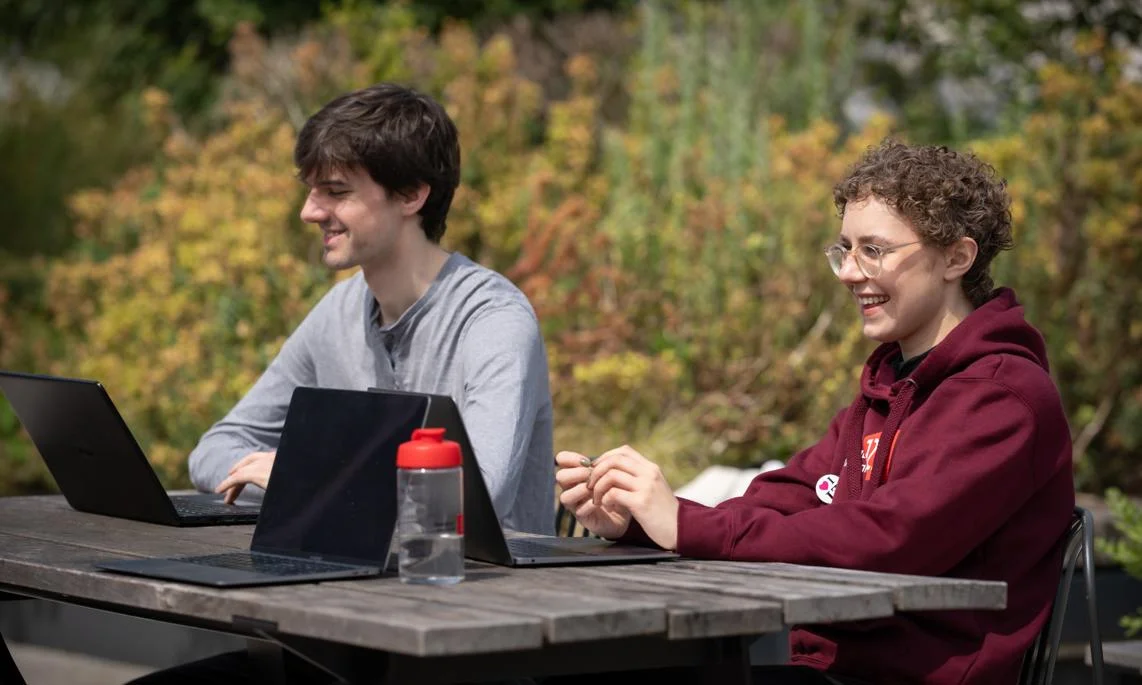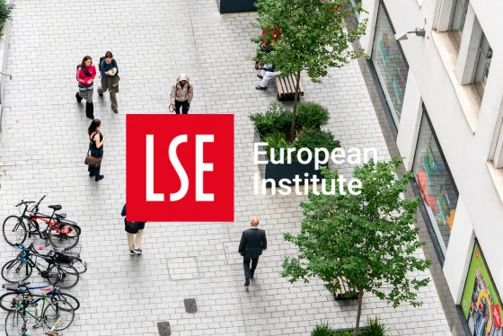Overview
Introduction
Do you want to understand the way Europe is reshaping its economy and its place in the world? Do you want to acquire the intellectual tools to make sense of how Europe's economic and social model is changing as a new global order emerges? Do you want to learn how the latest multidisciplinary research in political economy can illuminate Europe's growth prospects, its approach to the threat of climate change, and the challenge of inequality and political instability?
If so, our Political Economy of Europe in the World programme is your gateway to answering these big questions — and building a career that makes a difference. Join us and learn from top academics and policy experts in Europe and beyond. The programme offers core courses covering the foundations of political economy and specialist courses that take you deep into the key contemporary challenges such as monetary integration and financial stability, work, welfare and inequality, the politics of climate change and the green transition, global trade and the future of capitalism.
You’ll also have access to a suite of optional courses that connect the politics, society, and culture of Europe from an multidisciplinary perspective, touching on themes such as migration, conflict, and identities.
The LSE European Institute is a vibrant and cosmopolitan community in the heart of London, hosting an exciting programme of events with regular guest lectures from leaders in business, politics, and European civil society as well as leading academics from around Europe and the world.
If you’re ambitious, globally minded, and eager to understand (and influence) the forces shaping our future — this is the programme for you. Apply now and equip yourself with the tools you need to thrive in a fast-changing world.
Preliminary readings
- Barr, Nicholas Adrian. The economics of the welfare state. Oxford University Press, 2020.
- Carlin, Wendy, and David W. Soskice. Macroeconomics: Institutions, instability, and inequality. Oxford University Press, 2024.
- De Grauwe, Paul. Economics of monetary union. Oxford university press, 2020.
- Hancké, Bob, Toon Van Overbeke, and Dustin Voss. Understanding Political Economy. Edward Elgar Publishing, 2025.
- Hopkin, Jonathan. Anti-system politics: The crisis of market liberalism in rich democracies. Oxford University Press, 2020.
- Innes, Abby. Late Soviet Britain: Why Materialist Utopias Fail. Cambridge University Press, 2023.
- Kundnani, Hans. Eurowhiteness: Culture, Empire and Race in the European Project. Oxford: Oxford University Press, 2023.
- Moschella, Manuela, Quaglia, Lucia, and Spendzharova, Aneta. (Eds.) European Political Economy: Theoretical Approaches and Policy Issues ( First Edition). Oxford: Oxford University Press, 2023.
- Schmidt, Vivien. Europe's Crisis of Legitimacy. Governing by Rules and Ruling by Numbers in the Eurozone. Oxford: Oxford University Press, 2020.
- Walter, Stefanie, Ari Ray, and Nils Redeker. The politics of bad options: why the Eurozone's problems have been so hard to resolve. Oxford University Press, 2023.
Entry requirements
Upper second class honours (2:1) degree or equivalent in any of the social sciences, including politics, economics, sociology, European studies, contemporary history or international relations.
In exceptional cases, strong candidates who do not have the appropriate academic background may be required to take a specified related LSE summer school course and obtain a specified grade as a condition of admission.
Please select your country from the dropdown list below to find out the entry requirements that apply to you.
Overseas
English language requirements
The English language requirement for this programme is Higher. Read more about our English language requirements.
Competition for places at LSE is strong. So, even if you meet the minimum entry requirements, this doesn't guarantee you an offer of a place.
However, please don’t feel deterred from applying – we want to hear from all suitably qualified students. Think carefully about how you can put together the strongest possible application to help you stand out.
Programme content
Year 1
You'll take two compulsory half unit courses, optional courses to the value of two units, and a compulsory dissertation. One unit (or two half-unit courses) must be taken from a list of specialist courses on the political economy of Europe, taught by core staff in the Political Economy group. The other unit can be taken from a wider list of courses offered at the European Institute (including courses on EU governance and European identity) or, with permission, from another MSc degree at the LSE.
You'll also take "How do we know? An introduction to research design and methods in political economy" and attend "Engaging with Europe: professional skills". This is a programme designed for your professional development. Additional training sessions and thematic workshops are offered throughout the year.
Courses to the value of two units from a range of options
Why study with us
Discover more about our students and department.
Meet the department
The European Institute is a multidisciplinary centre for the study of European politics, economics and culture.
Founded in 1991, the institute is the UK's leading centre for the study of Europe, offering a range of master’s programmes and an extensive MPhil/PhD programme. Every year, we welcome more than 200 master’s and 30 doctoral students from all regions of the globe.
Our research spans four key themes – political economy, politics and policy, culture and society, and migration. Teaching and research draw on the expertise of staff from many different disciplines across LSE, including politics, economics and sociology.
The institute is outward facing. We run dozens of events each year, with workshops, seminars and presentations, welcoming high-profile speakers, including former presidents, prime ministers, foreign and finance ministers, distinguished scholars and influential commentators.
Internationally, we’ve forged close links with several partner institutions, including Sciences Po (Paris), Bocconi University (Milan), Fudan University (Shanghai), and Columbia University (New York) with whom we run double master’s programmes.
Why LSE
University of the Year 2025 and 1st in the UK in 2025 and 2026
Times and The Sunday Times - Good University Guide 2025 and 20261st in London for the 14th year running
The Complete University Guide - University League Tables 20266th in the world for the study of social sciences and management
QS World University Rankings by Subject 20256th in the world for leading the way in social and environmental sustainability
QS World University Rankings: Sustainability 2026Your application
Overview
We welcome applications from all suitably qualified prospective students. At LSE, we want to recruit students with the best academic merit, potential and motivation, irrespective of background.
We carefully consider each application and take into account all the information included on your application form, such as your:
- academic achievement (including predicted and achieved grades)
- statement of academic purpose
- two academic references
- CV.
See further information on supporting documents.
You may need to provide evidence of your English language proficiency. See our English language requirements.
When to apply
Applications for this programme are considered on a rolling basis. This means that applications will close once the programme is full.
There is no fixed deadline. However, if you’d like to be considered for any funding opportunities, you must submit your application (and all supporting documents) by the funding deadline. See the fees and funding section below for more details.
Fees and funding
The table of fees shows the latest tuition fees for all programmes.
You're charged a fee for your programme. At LSE, your tuition fee covers registration and examination fees payable to the School, lectures, classes and individual supervision, lectures given at other colleges under intercollegiate arrangements and, under current arrangements, membership of the Students' Union. It doesn't cover living costs or travel or fieldwork.
Home
Home student fee (2026/27)
For this programme, the tuition fee is different for home and overseas students depending on their fee status.
Overseas
Overseas student fee (2026/27)
For this programme, the tuition fee is different for home and overseas students depending on their fee status.
Learning and assessment
How you learn
How you're assessed
All taught courses are required to include formative coursework, which is unassessed. It's designed to help prepare you for your summative assessments, which count towards the course mark, and to the degree award. LSE uses a range of formative and summative assessments, such as essays, problem sets, case studies, reports, quizzes, exams, online assessments and many others. Summative assessment may be conducted during the course or by final examination at the end of the course. An indication of the formative coursework and summative assessment for each course can be found in the relevant course guide.
Graduate destinations
Overview
Former graduates pursue successful careers in politics, business, diplomacy, consultancy and journalism, and in international organisations and financial institutions. Students from this programme are actively headhunted by companies and international organisations working in the region.
Further information on graduate destinations for this programme
Median salary of our graduate taught students 15 months after graduating:
Top 5 sectors our students work in:
Career support
From CV workshops through to careers fairs, LSE offers lots of information and support to help you make that all-important step from education into work.
Many of the UK’s top employers give careers presentations at the School during the year and there are numerous workshops covering topics such as job hunting, managing interviews, writing a cover letter and using LinkedIn.
See LSE Careers for further details.

